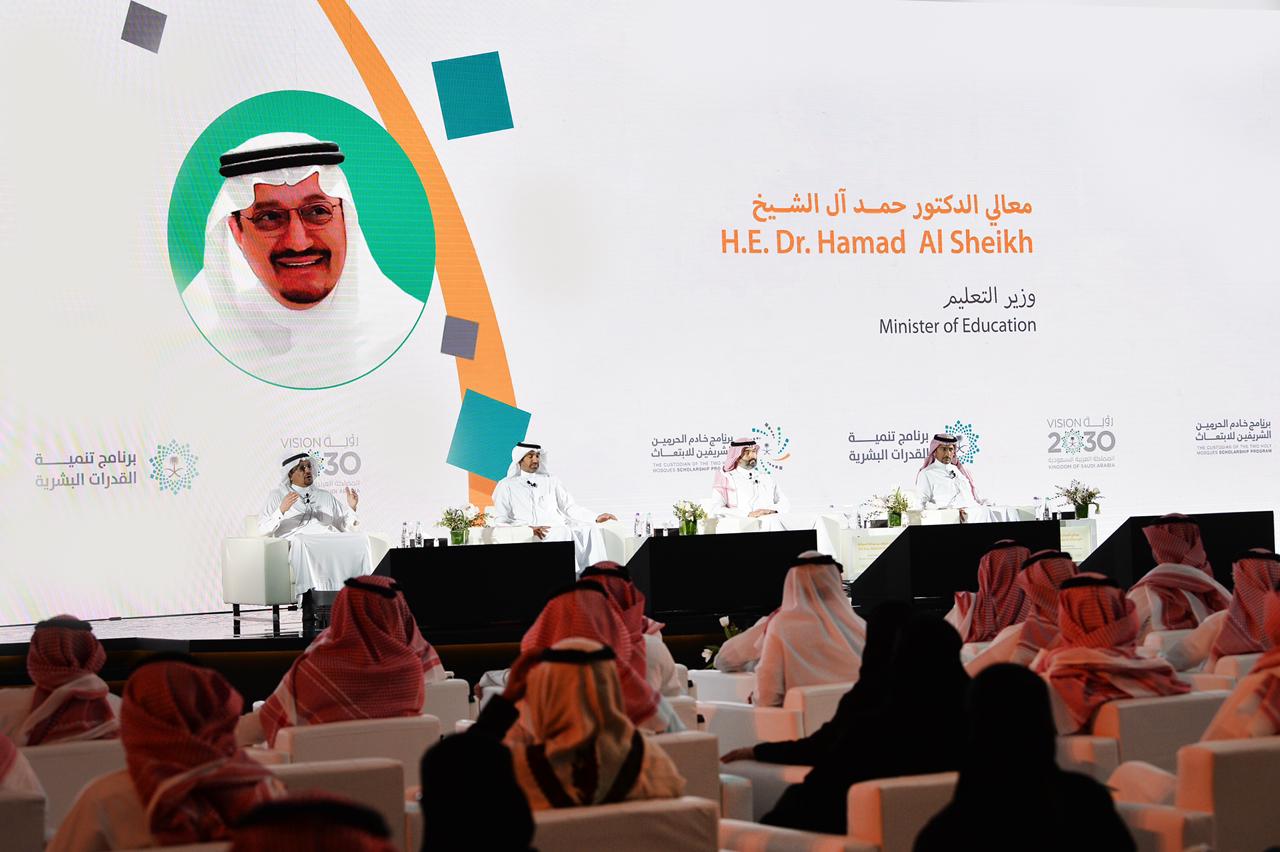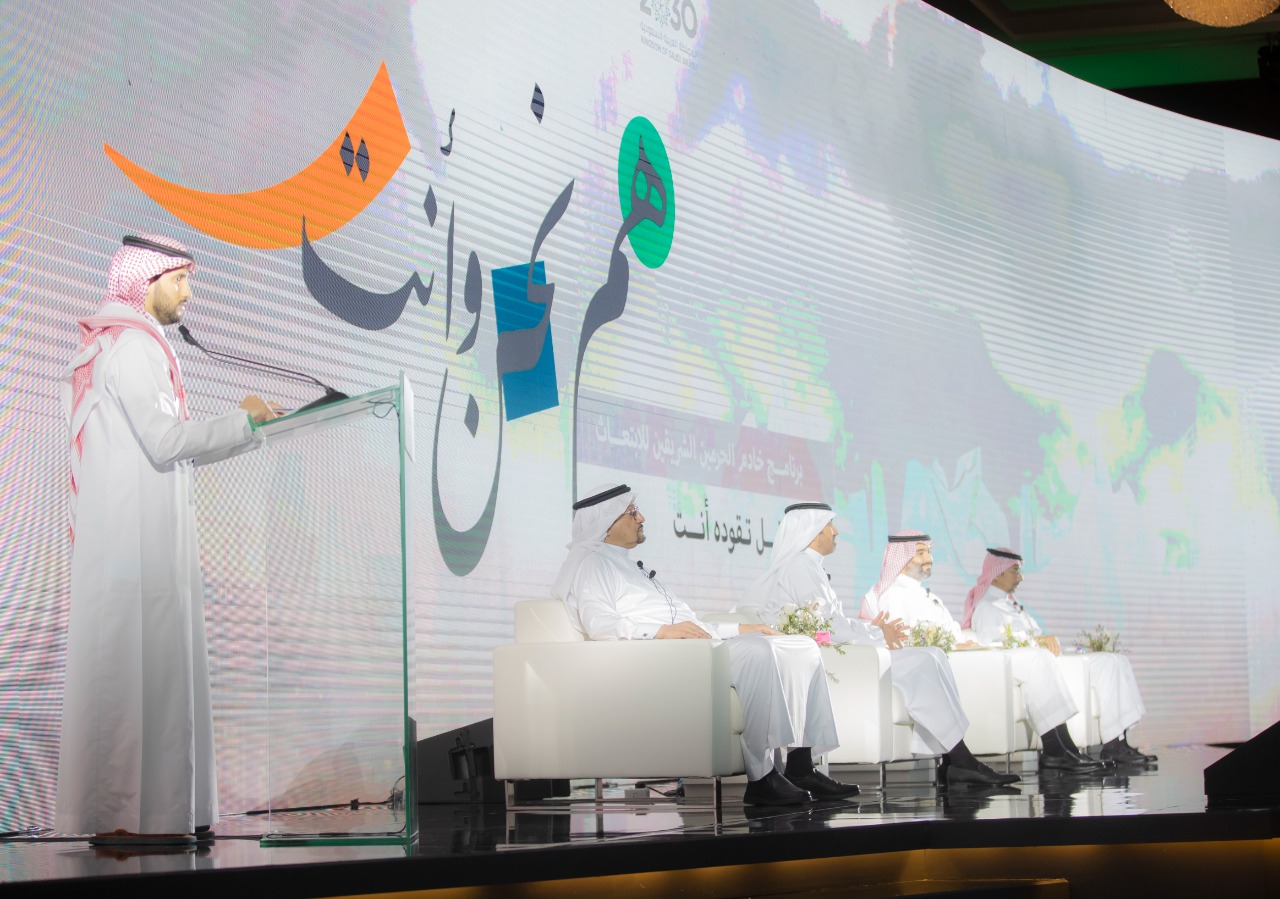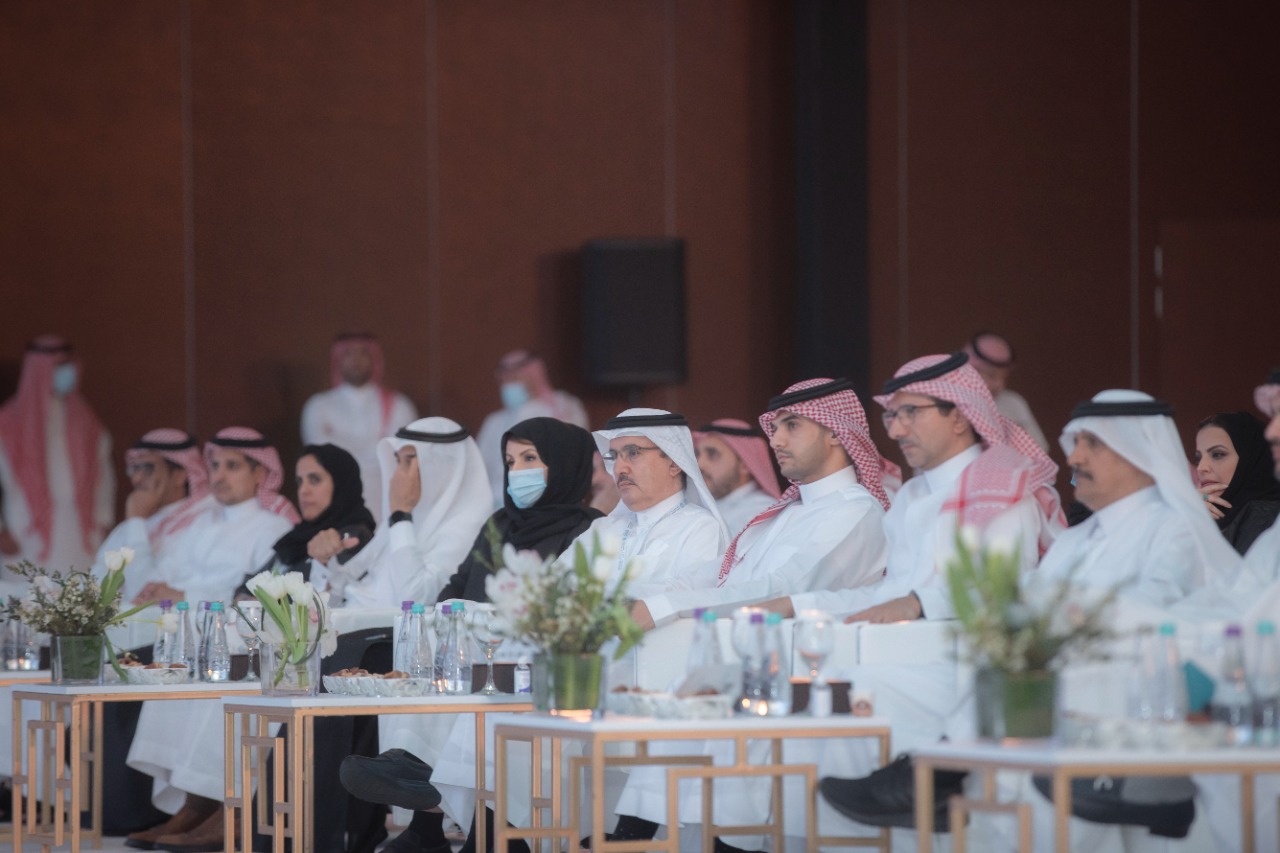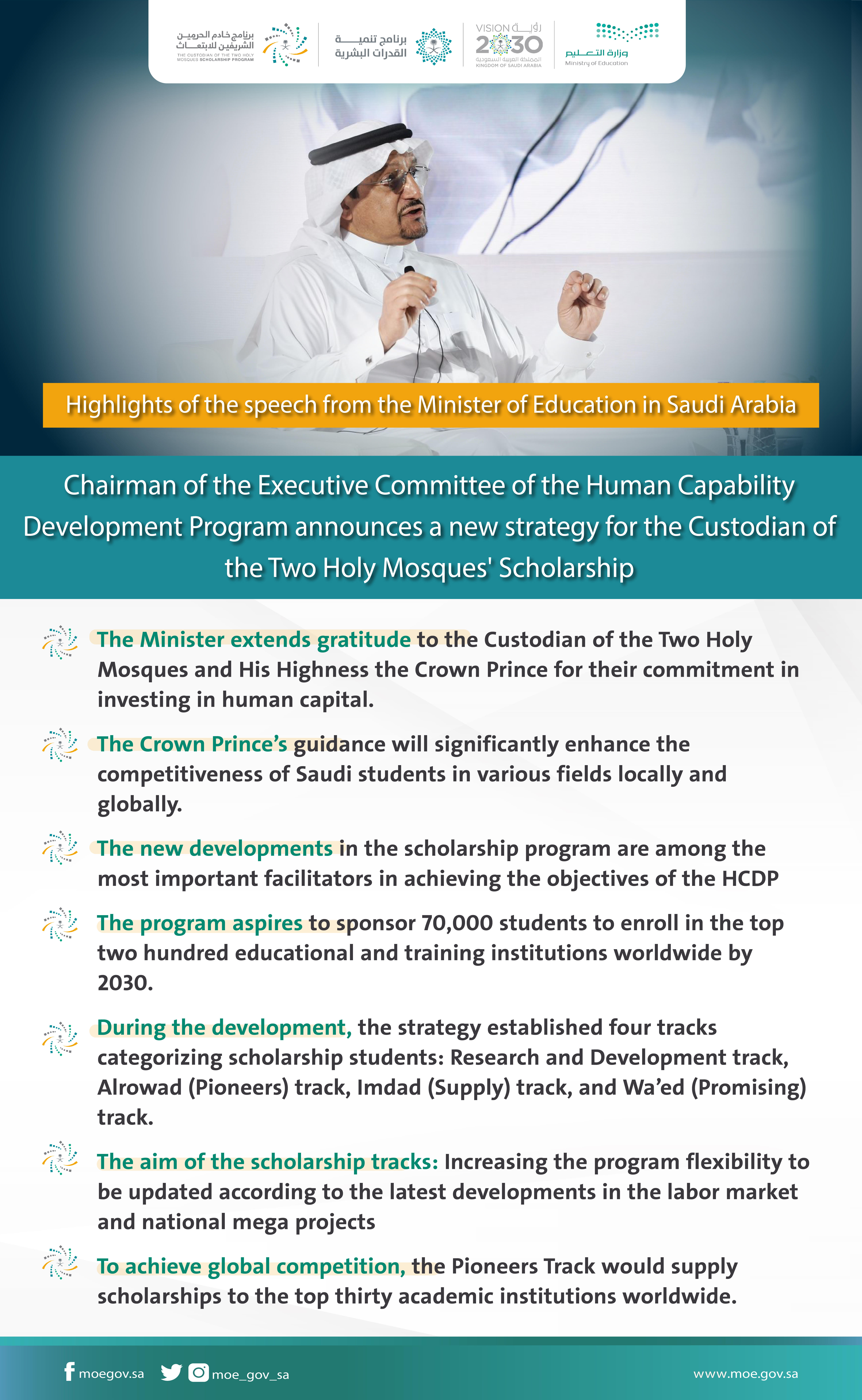
The Minister of Education, Dr. Hamad bin Mohammed Al Sheik spoke to the media yesterday concerning new developments in the Custodian of the Two Holy Mosques Scholarship Program.
As a Member of the Executive Committee of the Human Capability Development Program, the Minister stressed how educational scholarships are among the most important facilitators in enabling Saudi students to compete globally. According to its strategy, the program aspires to send 70,000 students to the world's top 200 educational and training institutions by 2030.
The Minister expressed his gratitude to the Custodian of the Two Holy Mosques, King Salman bin Abdulaziz Al Saud, for his unwavering commitment to investing in human capital. Dr. Al Sheikh extended his appreciation for the continuous support from His Royal Highness, the Crown Prince Mohammed bin Salman, whose guidance on this project will significantly raise students’ competencies in various fields locally and globally.
“More than 90 scholarship programs worldwide were analyzed to take advantage of the most important opportunities in those experiences, which we can work on through this strategy,” said Dr. Al Sheikh. “Our previous scholarship programs were analyzed and studied, and the most prominent challenges were identified. Accordingly, we determined the necessity of continuing the scholarships through qualitative programs.”
The new strategy categorized the program to have four tracks: Research and Development, Alrowad (Pioneers), Imdad (Supply), and Wa’ed (Promising). The Minister explained that each track has its own goals, governance, and fields. These tracks specify the target groups, qualifications, and specializations. They are intended to increase flexibility in the program and update new developments in the labor market.
The Minister described the Alrowad (Pioneers) track as essential in achieving global competition. Dr. Al Sheik explained that what distinguishes Alrowad track is opening it to all the science and humanities disciplines (technology, engineering, mathematics, politics, economics, languages, arts, etc.). Graduates of the Alrowad track are expected to show diversity in human capabilities and be armed with qualitative knowledge in various specialties.
The Minister clarified that the developments continue what was started in the Custodian of the Two Holy Mosques Scholarship Program more than 20 years ago. It is also an extension of the Kingdom’s efforts to support scholarships, which began for the first time in 1927—nearly a century ago. When Saudi Arabia started the first scholarships, they were directed to Arab nations, then expanded to Europe and America, until the Custodian of the Two Holy Mosques Scholarship Program was established.
The Minister of Education answered the media questions regarding the English language proficiency requirements for scholarship applicants. He clarified that the English language preparation will be provided locally, which should allow students to have the opportunity to learn a language other than English in the scholarship country. Local universities, “both governmental or private,” will directly contribute to implementing this project.
In response to whether the new scholarship tracks conflict with scholarship programs previously launched by other government agencies, the Minister stated that the tracks are integrated and compatible with the other government scholarship programs.
Furthermore, the Minister pointed out that the directions and ambitions of the Saudi leadership give so much regard and anticipation to the contributions of our youth to build a bright and promising future for the Kingdom.



